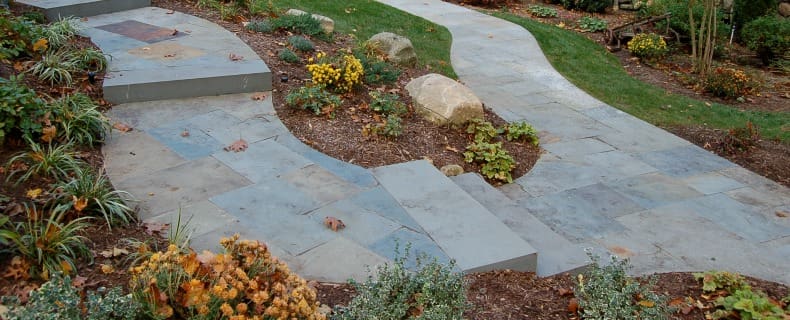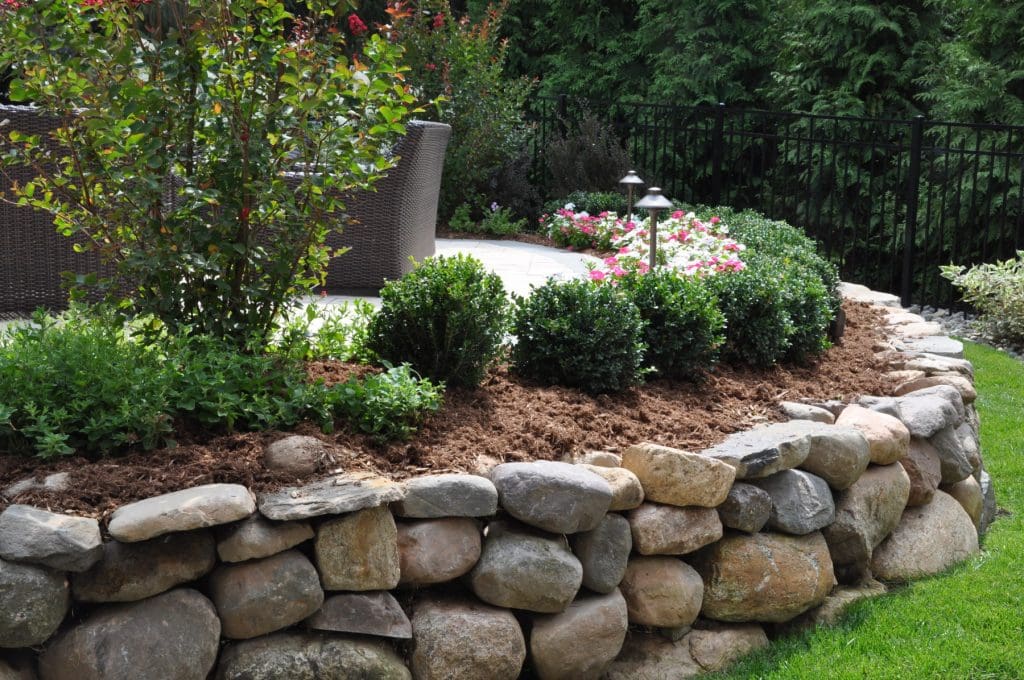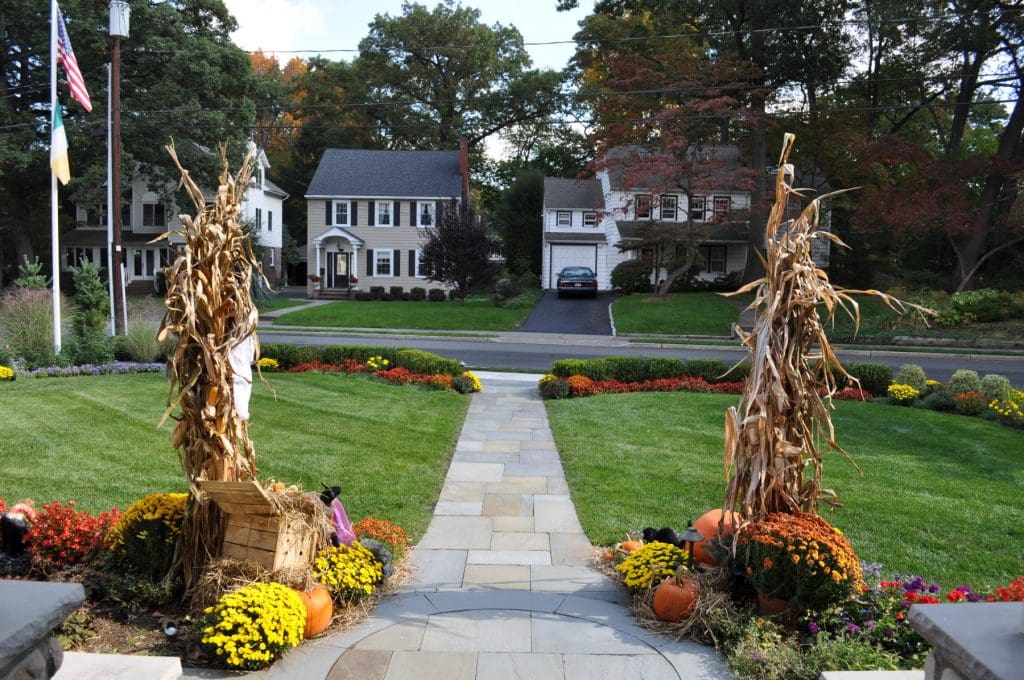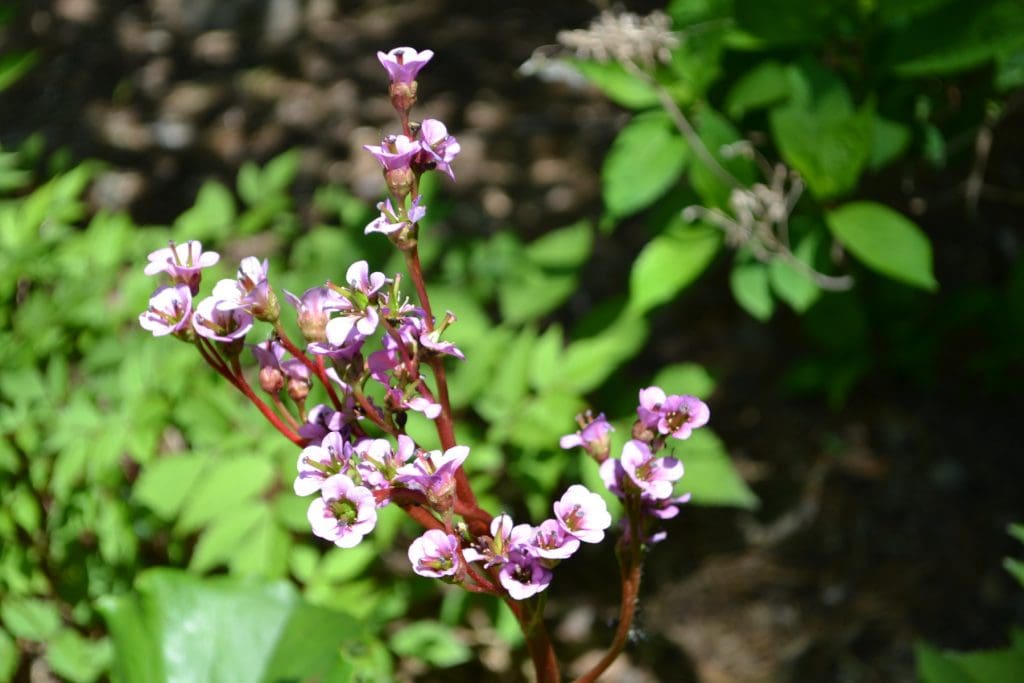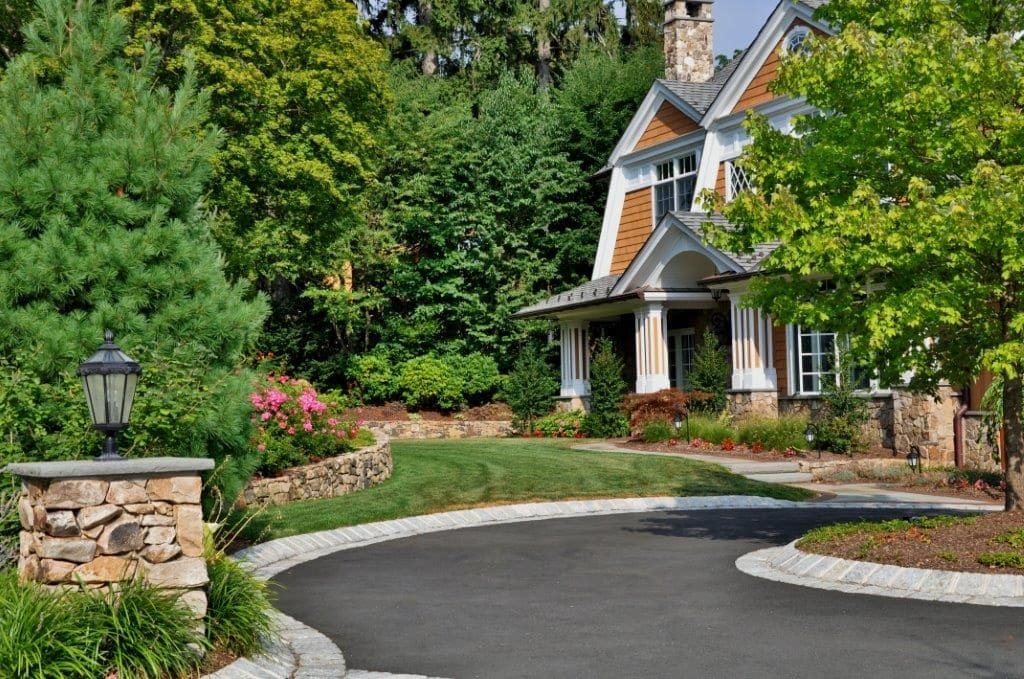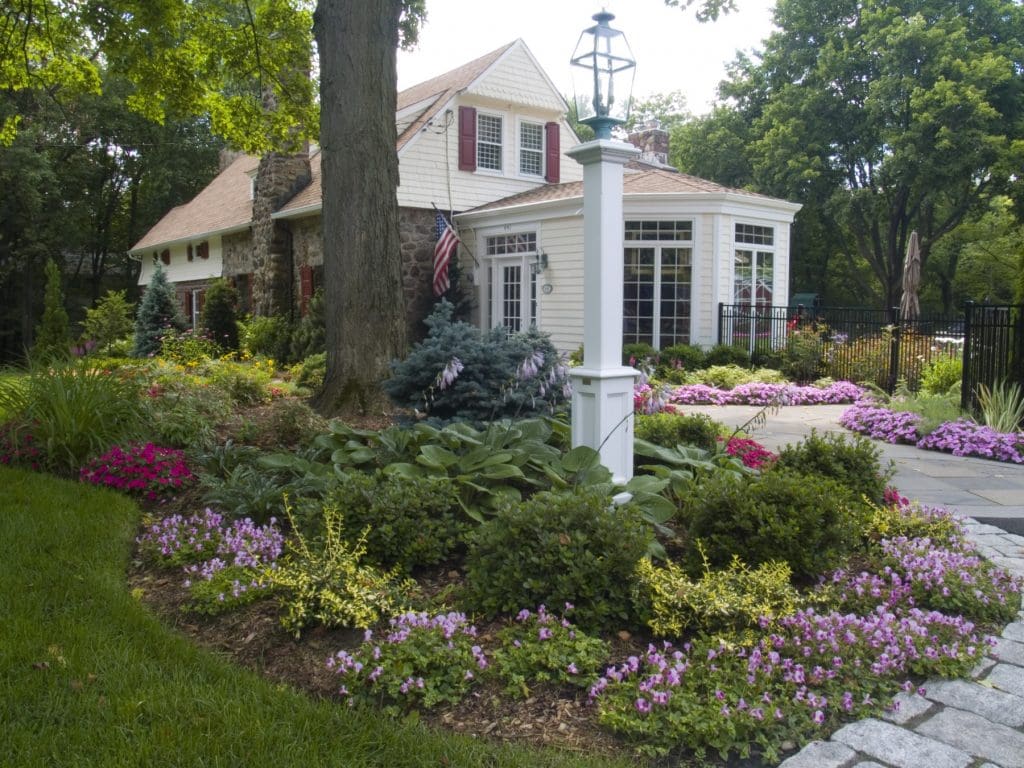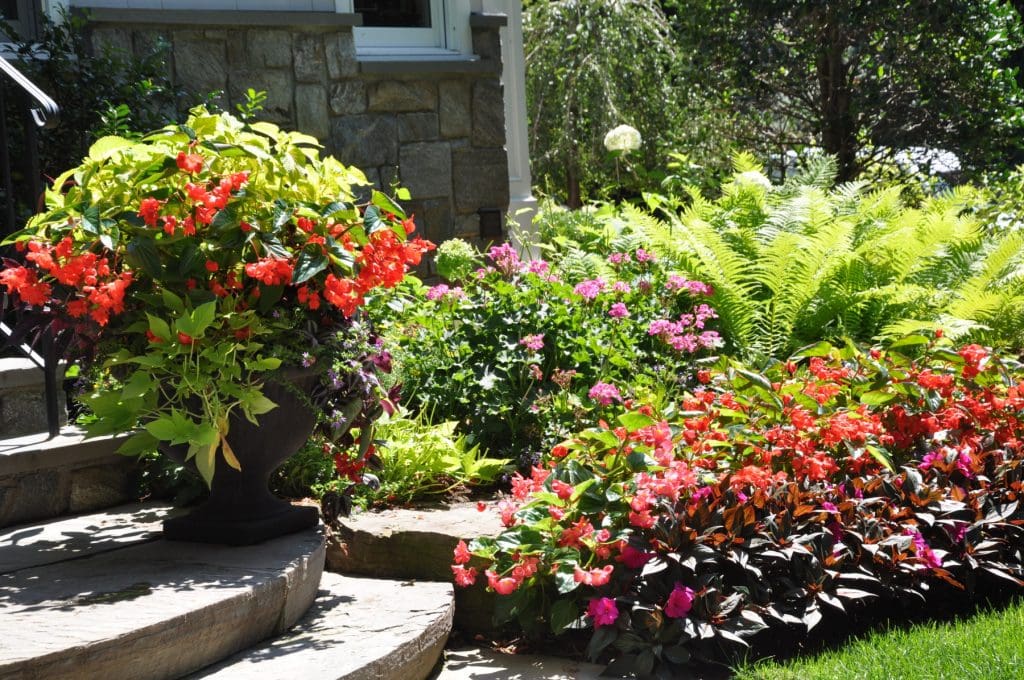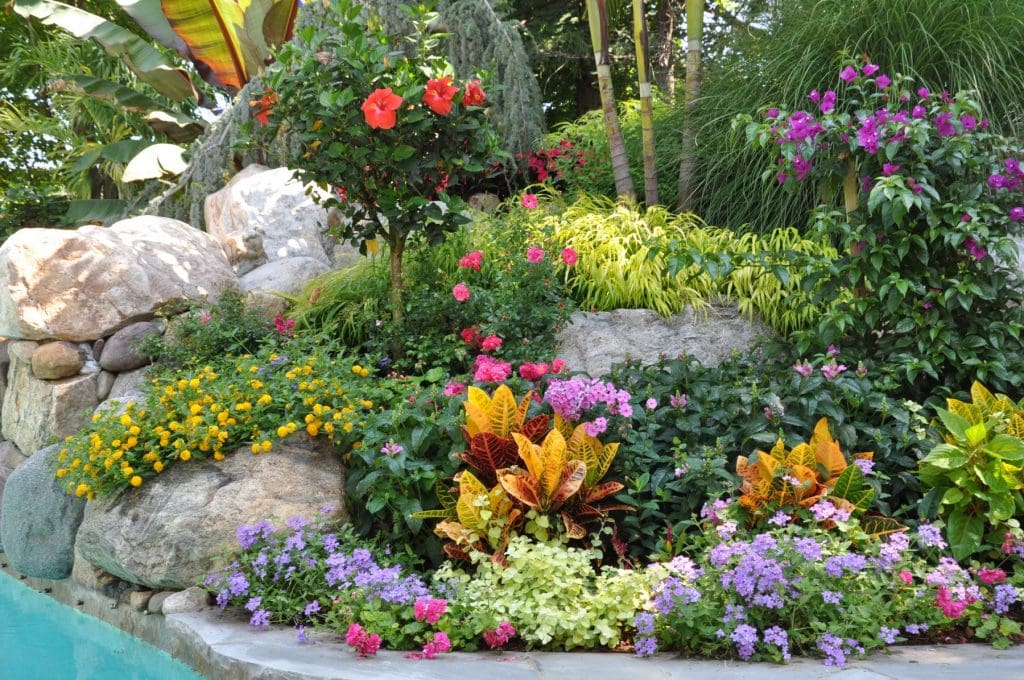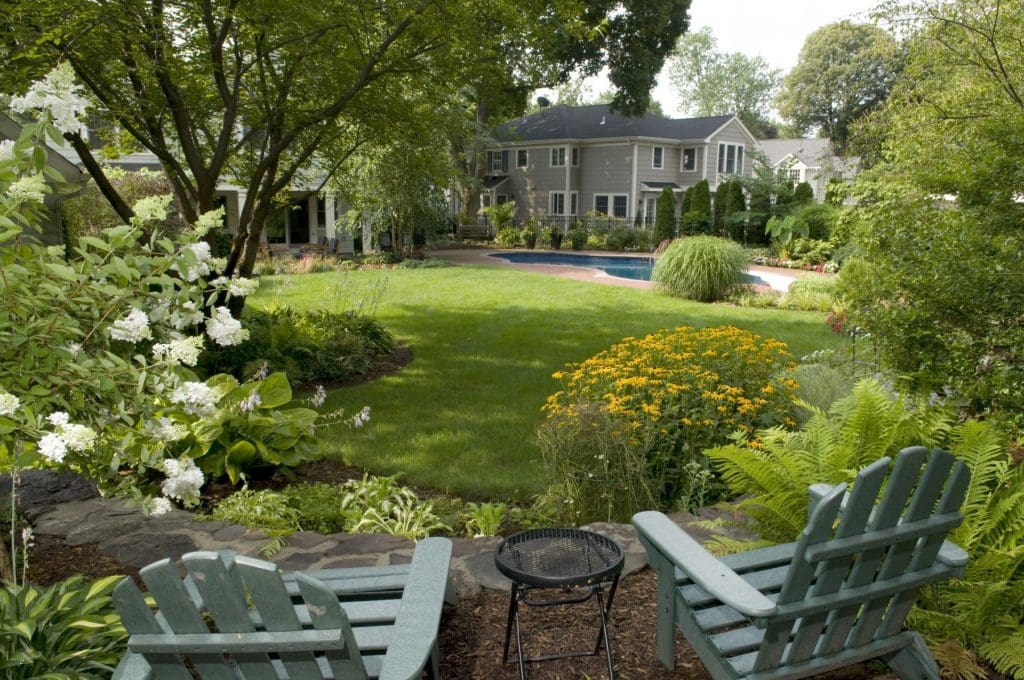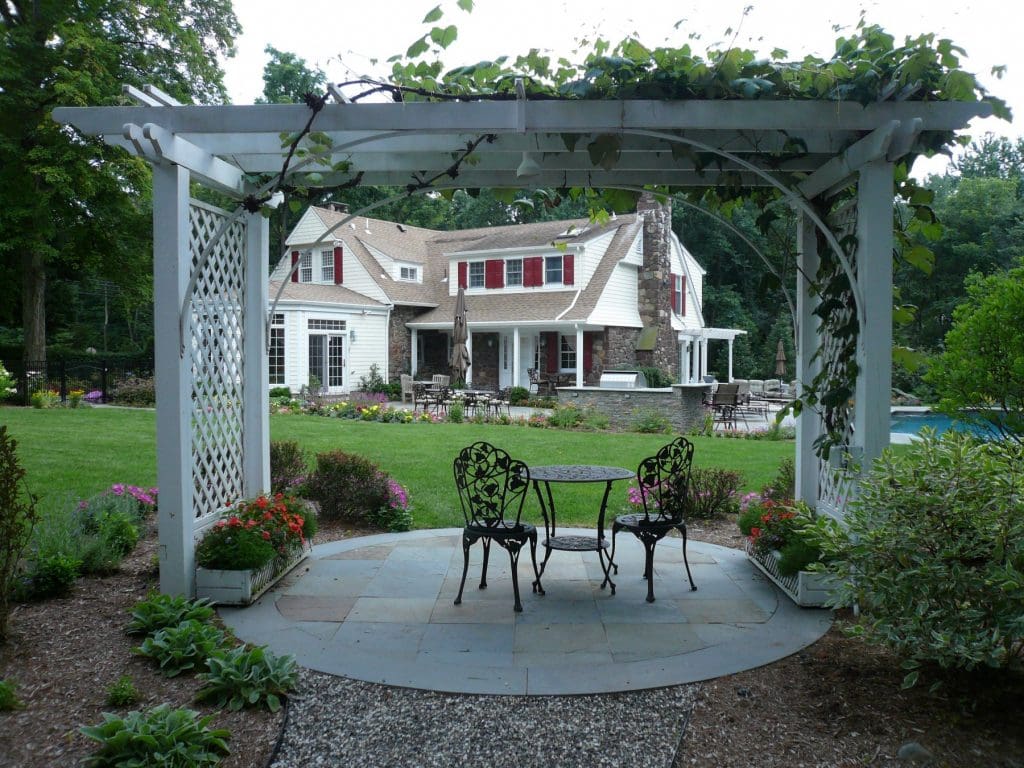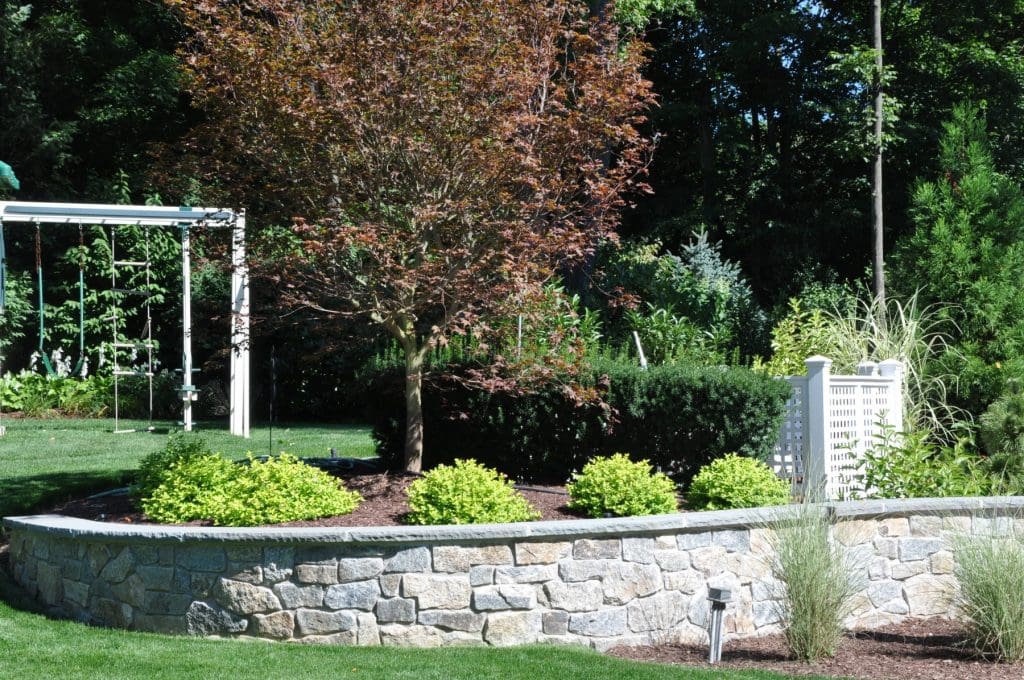Mulch is one of the simplest, inexpensive and most beneficial products you can use for your Northern New Jersey lawn and garden.
Mulch provides great benefits for your soil and plants and keeps your landscape healthy and well-manicured.
With a variety of mulch options on the market, you can choose the one that provides the most advantages for your landscape and garden needs.
Why is it Important to Use Mulch?
Mulch provides important health benefits to soil and plants. In the winter months, mulch acts like a big warm blanket that helps to insulate the soil and protect plant roots.
In the summer months, it deflects the sun and heat and keeps essential moisture and nutrients in the ground.
Organic mulch options will decompose and and add important nutrients back into the soil. You will need to replace them more often than inorganic mulches.
Each spring, you can add 1/2-inch to 1-inch of mulch topcoat to freshen up your garden. Every couple of years, add 2-inches to 3-inches of mulch to restore mulch that’s been lost.
Synthetic mulch options don’t decompose or provide benefits for the soil, but they offer other advantages for certain landscapes and garden areas.
Mulch provides important benefits such as:
- Retains moisture in the soil
- Maintains even soil temperatures
- Prevents soil erosion
- Reduces soil compaction
- Prevents weed growth
- Provides a neat, “finished” appearance
What Types of Mulch are Available?
There are different types of mulch you should be aware of before you make your decision. You can use organic mulch like bark chips, and grass clippings or inorganic mulch like pebbles, gravel, river rock, stones, brick chips, rubber and landscaping fabrics.
Although organic mulch provides more benefits for the soil, inorganic mulch options offer some advantages for hillsides, steep slopes and hard to maintain landscape areas.
Organic Mulch
Organic mulch, made from organic materials, naturally decomposes and adds essential nutrients to the soil.
When absorbed, natural materials help to increase soil moisture, aerate the soil and improve root growth.
Organic mulch also promotes a balanced environment for beneficial earthworms and other organisms that create rich, fertile soil and healthy plant growth.
- Hardwood Bark Chips – Hardwood mulches are made from shredded bark of hardwood trees like oaks and maples. Hardwood mulch is a hardy organic material that resists high winds and rain. It stays in place well and adds nutrients to the soil as it decomposes. Hardwood mulch is one of the best types of organic mulch options for landscapes and garden areas because it breaks down slowly and it’s environmentally friendly. Garden Tip: Hardwood mulch becomes alkaline as it breaks down, creating benefits for most landscaping plants.
- Shredded Cedar – Shredded or chipped cedar makes an excellent mulch for flower beds with smaller annuals and perennials, as well as around larger shrubs and trees. It creates a light, airy look and adds texture to your landscape. Cedar decomposes slowly and takes years to break down, so it doesn’t need to be replenished as frequently as some other types of mulch. Garden Tip:The resins in cedar emit a scent that keeps certain types of insects away from plants.
- Hemlock Bark – Hemlock bark can be finely ground or used in larger bark pieces. It comes in a rich, natural reddish-orange to burgundy color that provides great contrast around plants and trees. Hemlock bark has a high concentration of tannins which help to repel outdoor insects and pests. Garden Tip: Conifer hemlock mulch is non-toxic and completely safe around children and pets.
- Grass Clippings – Grass clippings break down quickly, but they add nitrogen to the soil as they break down. When using grass clippings as mulch, make sure clippings are dry and spread them in thin layers to prevent grass rot as clippings decompose. Garden Tip: If your lawn is chemically treated, avoid grass clippings as mulch options in your vegetable and garden beds. The chemicals can harm your plants.
Inorganic Mulch
Inorganic mulch is great for certain types of landscapes and Bergen County homes built on steep slopes, hillsides or terraced levels.
Although inorganic, or synthetic, mulch materials don’t decompose and provide nutrients for the soil, they do offer good protection for drainage problems, soil erosion and hard to reach landscape areas that are difficult to maintain.
- Gravel and River Rock – Since gravel and river rock are inorganic materials, they will never break down or decompose in your landscape and garden areas. Although they will not improve your soil, you won’t need to replace them each year. Garden Tip: Since gravel and river rock are permanent mulch options, it can be difficult to remove them if you want a different type of mulch. It can also be more difficult to plant annuals and perennials in garden beds.
- Brick Chips – Brick chips are made from broken and crushed bricks. They come in irregular shapes and sizes that range from 3/4-inch to 1-inch. They are heavy and stay in place well over long periods of time, however they are one of the more expensive mulch options. Garden Tip: The natural red color complements homes made of red brick, red cedar and paint colors in earth tone shades.
- Rubber – Rubber mulch is made from recycled rubber, mainly from old tires. Since rubber is non-porous, it promotes soil moisture and reduces fungus growth in garden areas. It also helps to prevent weed growth, since weeds have a harder time growing through this dense mulch. Garden Tip: Rubber mulch, made from 100% recycled materials, helps to reduce the carbon footprint and protect the environment by eliminating rubber from landfills.
- Landscaping Fabric – If installed properly, landscaping fabric works well for blocking weeds, but it can be expensive. It works best when topped with pebbles, gravel or river rock that anchor it down and prevent movement. Garden Tip: Landscaping fabric is great for landscaping areas that have problems with soil erosion or drainage, but doesn’t allow enough water and air to penetrate the soil in garden areas.
 Does Mulch Attract Insects?
Does Mulch Attract Insects?
Mulch does not attract insects, but it can create an inviting environment if it isn’t used properly. Mulch should be applied from about 3/4-inch up to 3-inches deep.
Over applying mulch, from 4-inches to 6-inches deep, can create an environment where soil retains too much water and increases insect activity.
Bacteria and fungi that live in all soil recognize mulch as a food source. If the mulch is continuously moist and temperatures are just right, a fungus can occur. It’s usually visible on the surface of the mulch, but it’s harmless to live plants in your garden areas.
The bacteria and fungi are strictly feeding on the wood mulch, not your plants. To avoid bacteria and fungal growth, keep mulched areas dry. When watering, direct water to plant roots instead of the entire mulch bed.
During rainy times, stir up the mulch with a rake or hoe to fluff up and dry out the mulch. This will make it less hospitable for insects and fungal growth.
Do I Need Border Edging With Mulch?
The type of mulch you use in your landscape and garden beds will have an impact on whether or not you need to use border edging. If your landscaped beds contain organic mulch like bark chips, grass may grow into them more quickly.
You will need to redefine the edge of your beds a couple of times each year, so grass and weeds don’t take over.
If you use synthetic mulch options like landscaping fabric, rocks or gravel, you will need some type of permanent border edging to keep the mulch materials out of your lawn. If you use it on hillsides or steep slopes, you many need to anchor it from sliding down the hill, especially in a rainstorm.
Since mulch can get scattered by foot traffic, mowers, rakes and edgers, you can use a border edging to keep mulched areas neat and tidy. Border edging can also provide a more finished or decorative look to your landscape.
To make sure you choose the right type of mulch for your landscape and garden areas, talk to a Bergen County landscape professional who knows the advantages and disadvantages of different mulch options. At Borst, we promote organic mulch materials made from cedar, hemlock and hardwoods that decompose naturally and provide benefits to the soil.

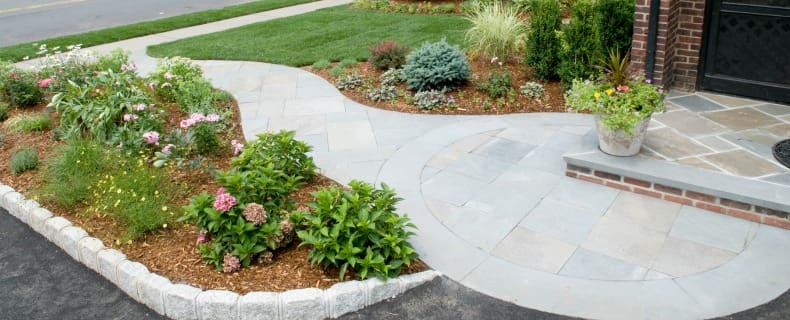
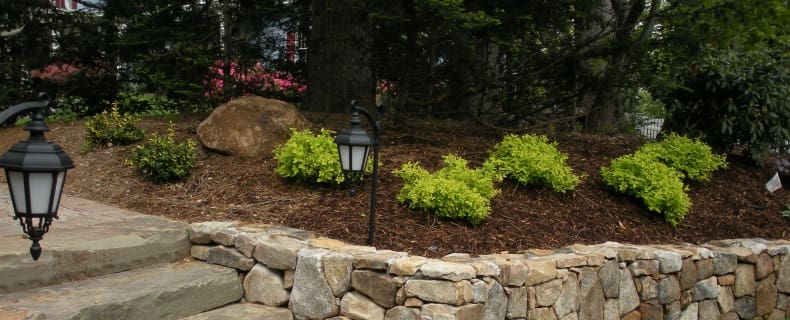
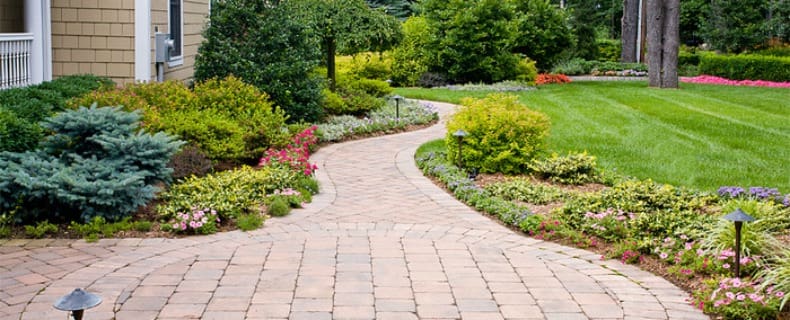 Does Mulch Attract Insects?
Does Mulch Attract Insects?